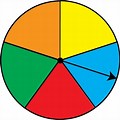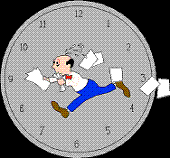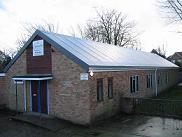Parent Information Pages
Our Behaviour Policy

Introduction
All of our Leaders regularly undertake Safeguarding training to ensure that we comply with the latest regulations associated with Child Protection. As part of this training we have a requirement to publish the process by which we manage any problems within the Group as a result of bad behaviour.
This is important not only for the protection of all young people who join the movement, but also for the Leaders should any situations arise that require action.
Although not required very often, there are occasions when it is necessary to take specific action to rectify a situation of poor discipline or behaviour. All sections thrive on a basis of fun and achievement and we accept that this includes an element of "cheekiness" and "mischievousness" but we need to clearly distinguish between this and consistent disruptive behaviour.
Examples of disruptive behaviour are Bullying (whether physical or verbal), continually ignoring the rules of the section or the directions of the Leaders, dangerous actions or actions likely to endanger others, or being continuously disruptive in games and activities.
Experience has shown that unless action is taken to address the situation quickly, the quality of Scouting on offer will deteriorate and the risk of losing members increases.
It is important that all members of the group and Parents are familiar with the expectations of the Group and what action may be taken if necessary.
If you have any questions relating to this subject, please ask your section Leader or myself.
Three Stages of Discipline
Within the group we operate three stages of discipline that are available to all Leaders to ensure that we do not compromise our standards or the quality of Scouting on offer to those in our care. The three stages are:-
- Formal Warning
- Suspension for a period of 1 to 3 weeks
- A request to leave the group
Before any of these formal steps are introduced, we will, as leaders make every effort to resolve the situation, and in most cases this will have included discussions with the parents to explain the background. Our objective is to resolve the situation and to allow the young person to continue their Scouting experience. If however these actions are unsuccessful, then we will invoke the formal approach.
In very exceptional situations, it may be necessary to immediately suspend an individual, to enable a formal review with full details being provided.
Formal Warning
The Beaver, Cub, Scout or Explorer will be informed that their conduct continues to be in breach of the rules of the section and that we will contact their Parents, describing the problem and what is required / expected to improve the situation.
Suspension
Following the formal warning, if the situation does not improve to the satisfaction of the leader, then the individual will be suspended and the parents contacted to explain the background.
The purpose of this suspension is to allow the individual concerned, to consider whether they wish to continue as part of the Scout movement (on our terms) or whether they would rather leave to try other activities.
Request to Leave
If after the suspension and further discussions, the situation continues then following consultation with the Leader, Parents and myself as Group Scout Leader, we may be forced to request that the individual leave the Group.
Right to Appeal
Within the Scout Association, there exists an appeals procedure if you feel that any action taken by the group are discriminatory or unfair. Details of this procedure are available from Ian Hawke on request.
























